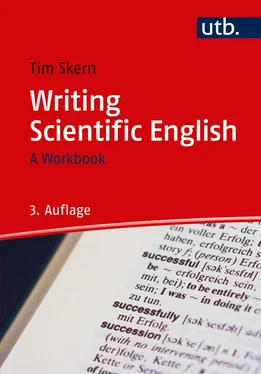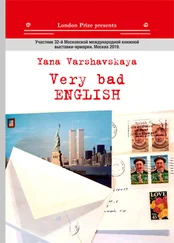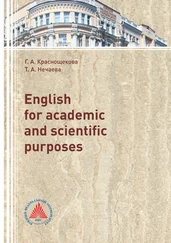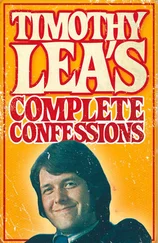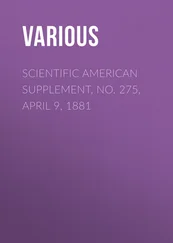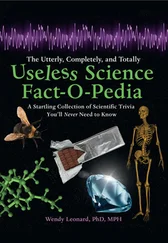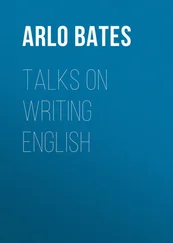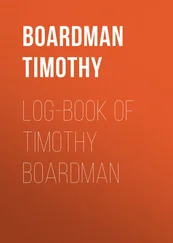Box 1.2Fooling a spellchecker
Word 2010's spellchecker considers the spelling of all the words below as being correct. Nevertheless, each sentence except one possesses a word that is spelled wrongly because it is used in an incorrect context. Find these twelve misspelled words and identify the one correct sentence without a spelling mistake. The solutions are given in section 1.6.1.
1. You must proof that two plus two equals four!
2. A prove that two plus two equals four is given on the first page.
3. Vaccines safe lives.
4. Spellcheckers chance the way we read our texts.
5. The theory of global warming remains to be proven.
6. Spellcheckers effect our ability to spell.
7. How do tortoises remain a life when hibernating?
8. Only a few scientists have received two Nobel Prices.
9. The affect of technology on the environment is substantial.
10. We loose the loose screw.
11. We judge how we live our lives form our own perspective.
12. The ability to write concisely and accurately is not heredity.
13. The price of the prize was a surprize.
1.1.1British or American?
Students have many questions at the beginning of a new course. The above question concerning the English to choose for their spellchecker is the most common. A frequent variant, often posed by post-graduate students and post-docs, is whether American English must be used to write a manuscript that will be submitted to an American journal. The answer to both questions is that it is not important which variant of English you choose. It is far more important that your English is clear, comprehensible and concise. An editor of a journal will not reject a manuscript because the spelling, vocabulary and punctuation are from an English-speaking person situated on another continent. Setting commas in the American way or writing “sulphate” instead of “sulfate” will not affect the fate of your manuscript. Once a journal accepts a scientific manuscript for publication, the production department will use its own spellchecker and software to put the manuscript into the style of the journal.
If you are just beginning to write scientific manuscripts, consider using American English. Two characteristics make it easier to learn and to use. First, spelling in American English is simpler and less perverse than in British English. Second, American English is younger than British English. The grammar of American English has, as predicted by Schopenhauer, become less perfect than British English. One example of this greater simplicity is the absence from American English of certain prepositions that British English absolutely requires. Thus, the British journal “Nature” might write “On Monday, the students protested against the removal of scientific writing from their curriculum.” In contrast, the American journal “Science” would structure the sentence with two fewer prepositions: “Monday, the students protested the removal of scientific writing from their curriculum.” The use of prepositions in any language is usually tricky. Anything which eliminates two of them at a stroke must make a writer's life easier.
Further evidence to support the hypothesis that American English is simpler than British English comes from a comparison of the names of musical notes ( box 1.3). The American system is straightforward and logical. The British system is complicated and not very informative. Three of the words say nothing about the property of the note. The word “semibreve” seems to indicate half of something, but it actually describes a full note. The word “breve”, meaning two notes, did exist, but it has become obsolete. There are many other examples of illogical words in British English. Non-native speakers may even have the feeling that the team of Monty Python's Flying Circus was involved in developing British English. The habitually bizarre and unpredictable nature of British English was perhaps one of the reasons why Monty Python's Flying Circus could only have originated in Great Britain.
In summary, do not waste time thinking about your choice of English. Concentrate instead on the guidelines and suggestions in this and the following chapter. They are much more likely to improve the quality of your manuscript than your choice of English. Readers will remember the quality of your manuscript and its advance in knowledge. They will not remember whether your manuscript contained American or British English.
Box 1.3Names of musical notes
| Musical note |
American English |
British English |
 |
full note |
semibreve |
| half note |
minim |
| quarter note |
crotchet |
| eighth note |
quaver |
| sixteenth note |
semiquaver |
| thirty-second note |
demisemiquaver |
| sixty-fourth note |
hemidemisemiquaver |
| hundred twenty-eighth note |
semihemidemisemiquaver |
1.2Formal English, the language of science
Formal English is quite different from the English found in novels, newspapers, emails and social media accounts. In formal English, words are chosen to fit a certain style and are written out in full. In addition, all sentences are complete, linked together and properly punctuated. This section provides guidelines on writing this type of English.
What is a complete sentence? A complete sentence relates a finished thought or action. An incomplete sentence leaves the reader searching for the full meaning or with the impression that something vital has been omitted. The exercises 3.6.2, 5.2.1and 5.3.1provide examples of incomplete or poorly constructed sentences for you to identify and improve.
Scientific manuscripts may, however, contain incomplete sentences as part of their title. Titles such as “Measurement of the speed of the expansion of the Universe” or “Discovery of a new gene linked to Alzheimer's disease” are quite common. Similarly , the titles of the figures showing the data are often incomplete sentences. There are two reasons why titles are sometimes written in this way. The first is that they sound punchier, in the same way that newspaper headlines are often not complete sentences. The second is to reduce the number of characters required. Many journals often have quite strict limitations on the number of characters in the title.
Punctuation marks are essential information signs for the reader. They include: full stops (.), commas (,), semi-colons (;), colons (:), question marks (?), exclamation marks (!), quotation marks (“”) and brackets (). Full stops, signifying the end of a sentence, are relatively straightforward to use. In contrast, the other punctuation marks are often a source of uncertainty. This section contains some suggestions that should ensure that most of your punctuation marks are correct. Do not worry about the remainder. A journal will not return your manuscript just because some commas are in the wrong place.
Commas are perhaps the greatest source of difficulty. Life can, however , be simplified by the realisation that there are basically only three situations in scientific English in which commas are necessary. There is also one situation in which a comma is not necessary. These four situations are outlined below.
Читать дальше
